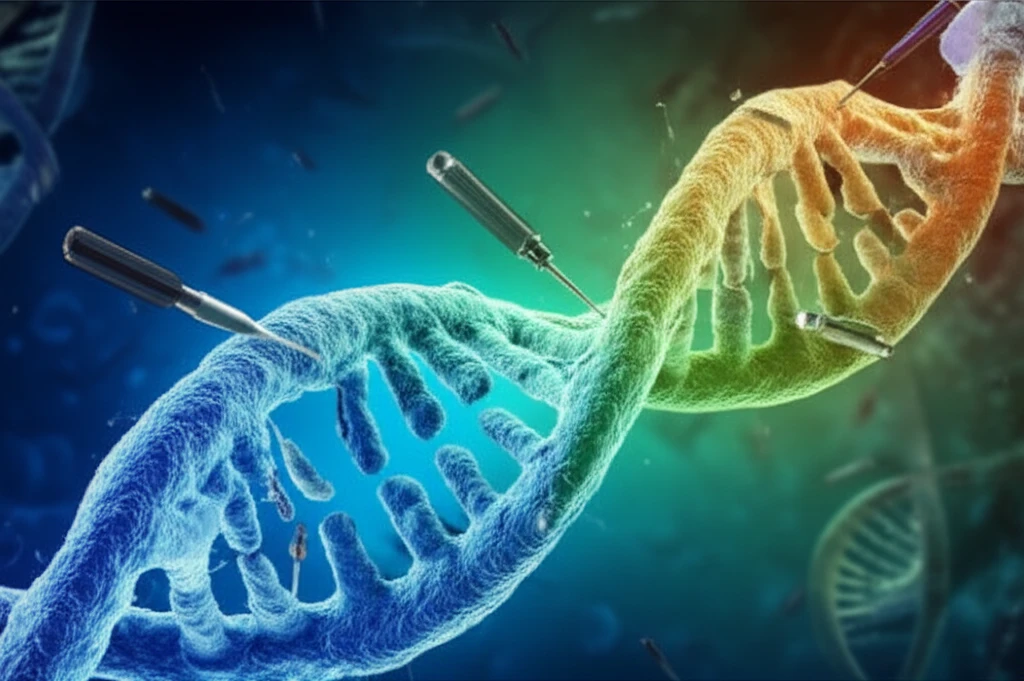
Decoding DNA's Secrets: How Epigenetics Could Be the Key to a Healthier, Longer Life
"Unlocking the power of our genes: Explore how lifestyle, environment, and DNA methylation are revolutionizing the fight against disease and aging."
In the bustling world of scientific discovery, a quiet revolution is underway. It's not about new drugs or groundbreaking surgeries, but a deeper understanding of what makes us, us: our genes. For decades, scientists have been decoding the human genome, but now, a new frontier is emerging: epigenetics. This fascinating field explores how our environment and lifestyle influence our genes, and ultimately, our health.
At the heart of epigenetics lies DNA methylation. It's a biological process where methyl groups attach to a DNA molecule, altering the activity of a DNA segment without changing the DNA sequence itself. Think of it as a dimmer switch for our genes—turning them up, down, or off entirely. This process is not just a scientific curiosity; it's a powerful player in aging, disease, and our overall well-being.
This article delves into the world of DNA methylation and its role in disease and longevity. We'll explore the mechanics of DNA methylation, the latest research on how it impacts our health, and the exciting potential of therapies that could harness this knowledge to promote healthier and longer lives. Get ready to unlock the secrets of your genes and discover how you can take control of your health.
The Basics of DNA Methylation: What It Is and Why It Matters

To understand DNA methylation, we need to think about our genes. Genes are the blueprints of our bodies, carrying the instructions for everything from eye color to our risk of developing certain diseases. However, the activity of our genes is not simply predetermined; it's influenced by a complex array of factors. DNA methylation is one of the most important.
- Gene Regulation: It acts as a regulatory mechanism, controlling which genes are 'turned on' or 'turned off' in different cells at different times.
- Cellular Differentiation: Facilitates cellular differentiation. This process helps cells take on specialized functions, such as muscle cells or nerve cells.
- Genomic Stability: Helps maintain the stability of our genome. It protects against harmful mutations and prevents the uncontrolled expression of certain genes.
The Future of Epigenetics: Hope for a Healthier Tomorrow
The study of epigenetics is still in its early stages, and there's much we don't know. However, the potential benefits of understanding and manipulating DNA methylation are enormous. From preventing heart disease and cancer to slowing down the aging process, the future of epigenetics holds the promise of a healthier, longer, and more vibrant life for all of us.
